Broadening Your Internet Search -- Making Searching Even Easier
Internet (or Google) search is not the same a library's catalog search.
Let's first see the problem with what we do (in our Internet search step), and how Google assumes our search request.
In Google search, by using different keywords your search gets more specific.
Example: a. (key words) International Comparative Librarianship; b. (words & key phrases, i.e., words in quotes) "Information services" Research "Content management" Training "Human Resources" "Helpful Advice" "Related Services"
The above specificity reduces the number of search results. Remember, if you make it too specific, you may miss some useful websites.
When you type a word, Google search mechanism views it as though there is an AND between each of your search terms-- though you may not have typed: AND. Obviously Google will search only for websites that have all the words you entered.
Now to broaden your search, you can type OR between two words (that automatically avoids AND). Then, Google looks for sites that have any one of your search terms. For example, if you search for ‘International OR librarianship’, you will find only results with either words--results show all the sites containing the words ‘international’ and all the pages containing the word ‘librarianship’. [adapted from Open.edu]
See also:
- DOING WEB QUERIES USING GOOGLE
- The ~ Operator : Find synonyms by preceding the term with a ~, which is known as the tilde or synonym operator.
- Exercises/Solutions
- Google as Teacher: Everything Your Students Know They Learned from Searching Google Pamela N. Martin, Utah State University
Labels: Catalog, Google, Googleology, Internet



0 Comments:
Post a Comment
<< Home